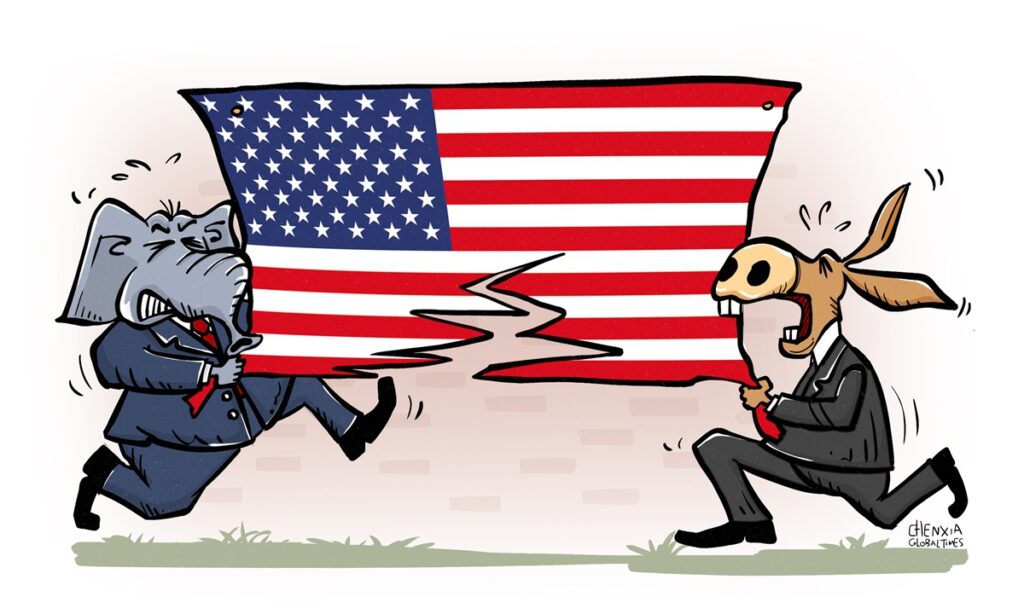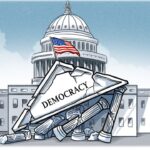With the US entering the major election cycle, and amid the dynamics of electoral politics, the Republican Party is determined to erode Biden’s political standing and undermine the overall position of the Democratic Party. This is aimed at securing an advantage for the Republican Party in next year’s presidential election and congressional elections.
Considering that former US president Donald Trump faced impeachment by the Democratic Party in 2019 and 2021, the current impeachment inquiry into Biden can be seen as a retaliatory move by the Republican Party. Although Republicans are aware that the outcome is likely to result in nothing substantial, if they can use this opportunity to tarnish Biden’s reputation and create difficulties for him, especially among independent voters in the center, it would be considered a significant victory.
Impeaching a president is not common in US history, and the recent increase in frequency of impeachment indicates that it has become a political drama or game initiated by both parties for political gains. The root cause of these phenomena lies in the growing political polarization in the US. In the past, although there were differences in ideology between the two parties, they could sit down and discuss. However, with the marginalization of moderates within both the Republican and Democratic parties, their voices and influence have diminished. As the polarization between the two parties has become increasingly apparent, it is challenging to reach a consensus on numerous issues, and the space for compromise is shrinking. If one were to compromise, there is a risk of facing internal consequences within his or her own party.
The frequent occurrence of political dramas in the US has led to an increasingly evident phenomenon in its democratic and political systems, known by political scientists as “veto politics.” The recent impeachment vote in the House of Representatives against Biden exemplifies this trend, with all Republicans voting in favor, all Democrats voting against, with only one Democrat not voting – a clear demonstration of prioritizing party interests. The perpetual dynamic of the non-ruling party consistently vetoing the actions of the ruling party, regardless of right or wrong, based solely on partisan lines between Democrats and Republicans, exacerbates partisan politics. This sharpens divisions, rendering both domestic and international policymaking difficult, resulting in inefficient decision-making. In this scenario, achieving good governance becomes extremely challenging for the US. Regarding Americans’ views of the national politics, just 26 percent of US adults have a favorable view of Congress, while 72 percent have an unfavorable view.
The current state of US political polarization raises concerns about the nation’s direction. Major disagreements on issues related to the country’s development direction, the role of the government have led to constant debates, contributing to social division and reduced internal cohesion. Polls show that 78 percent of respondents say the US is headed in the wrong direction.
Internationally, as the US is a hegemonic power, its actions have a significant influence on its allies and partners. However, many of them are now concerned about the potential changes and impact brought about by future US elections. For instance, in terms of climate change, the international society lacks confidence in the US, fearing that policies discussed by one administration may be reversed by the next. Therefore, the domestic partisan turmoil in the US not only has a disruptive effect on its development, but also spills over to affect US relations with other countries, especially allies and partners, having impact on the balance of power in other regions and bringing uncertainty to the overall global landscape.




